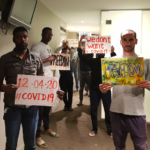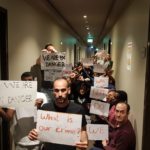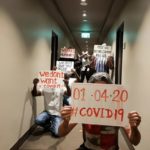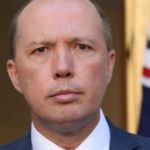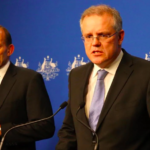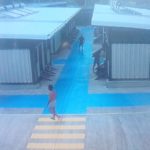Impossible to Distance in Detention: An Interview With Manus Detainee Farhad Bandesh
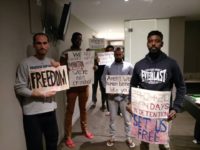
The subject of the ABC’s 20 April Q&A was COVID-19: Where to Next? And about 20 minutes into the program, long-term asylum-seeking detainee Farhad Bandesh appeared via video link to ask the panellists a question.
The 38-year-old Kurdish man from Iran asked why he and close to 70 other men staying at the Mantra Hotel in the Melbourne suburb of Preston can’t be released into the community during the pandemic, as there are people out there who have offered to provide them with accommodation.
These days, the Mantra is classed as an alternative place of detention (APOD). Bandesh was first sent there last July, after being held on Manus Island since 2013. He and the other offshore detainees were transferred to Australia from Manus or Nauru under the provisions of Medevac.
And right now, the men at the Mantra are watched over by guards, who come and go every day. The Serco officers don’t practice social distancing and nor do they wear masks. And due to their confines, the detainees can’t practice distancing or isolation and they have no access to protective gear.
A potential death sentence
Two nights after appearing on national television, Bandesh was forcibly removed from the Mantra Hotel without his goods. He was then taken to the prison-like complex that is the Melbourne Immigration Transit Accommodation facility, otherwise known as MITA.
Although nothing has been said officially, the link between Bandesh’s television appearance and his being placed in an immigration detention facility is quite obvious. After seven years in confinement, the man who has committed no crime, is once again being punished.
Sydney Criminal Lawyers spoke to Kurdish musician Farhad Bandesh about the seven years of detention the government has put him through, the ongoing COVID release protest the Mantra detainees are staging and the dangerous conditions over 1,400 immigration detainees now face.
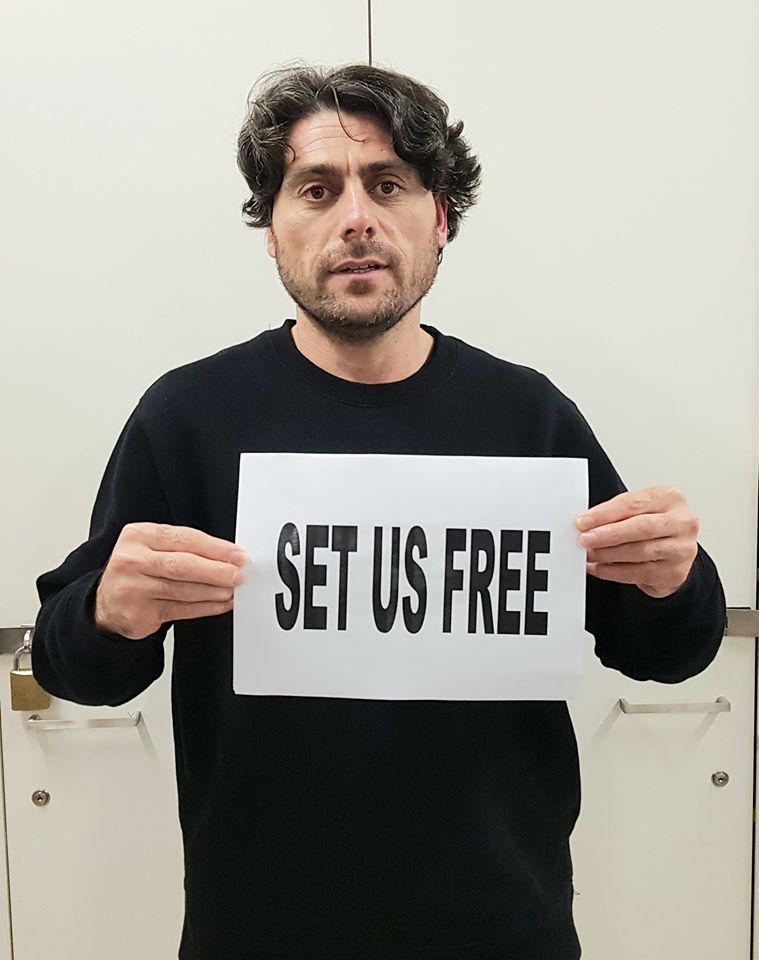
Firstly, on 22 April, Australian authorities removed you from the Mantra Hotel where you’d been staying for the last 9 months. You were then taken to MITA.
Two nights before your removal, you appeared on Q&A to ask the panel a question about your continued detention during the COVID-19 pandemic.
What have you been told was the reason for your removal?
The ABF hasn’t said anything about why. I feel that over the last few months they didn’t like me being there because of the protest.
The reason they sent me to MITA is because I am a refugee who is talking about freedom.
Freedom is something all refugees and asylum seekers deserve to have.
Mr Bandesh, you appeared on Q&A to draw attention to the conditions that you and close to 70 other asylum seekers were being held in at the Mantra. What is the problem with that situation?
The situation at the Mantra is very fearful for those guys. They’re panicking.
There are lots of guests at the Mantra. There are flight attendants that come and go four times a day.
There are Serco guards that never use gloves or masks. That was the reason I went to the media to ask the government what they were going to do for us.
The Q&A appearance was awesome. It had great feedback. Most of the people in this country now know what’s going on.
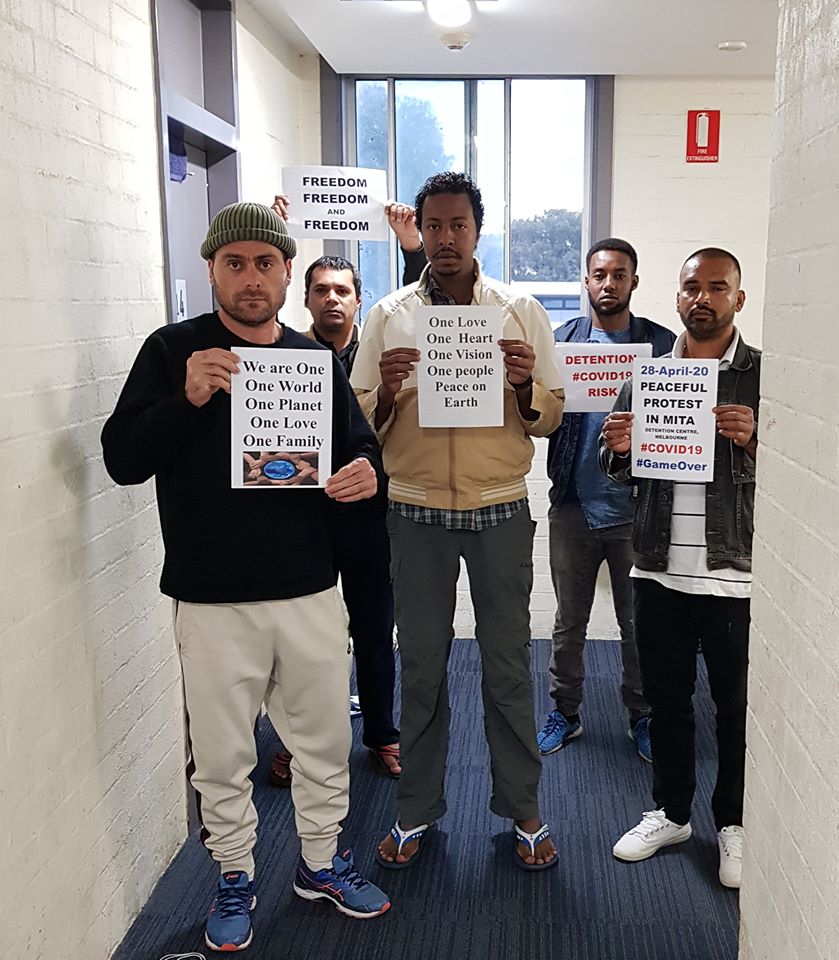
So, what are the conditions like at MITA, where you are now? How do they differ from the Mantra?
Here it is the same as before. I’ve spoken to most of the people here. And they’re really scared because they don’t want to catch COVID-19.
There are no guarantees here. No one could say there is a 100 percent guarantee that COVID won’t affect us. And they don’t know what to do.
We are still sharing rooms, like six or seven people, or a room of three. We’re sharing rooms like that. And the bathroom in A1 is shared.
It is impossible to practice social distancing in detention centres. It doesn’t matter, whether it’s MITA or the Mantra Hotel, because we have contact with the officers every day.
So, the officers or guards that watch over you come and go every day?
Yes. And there are no guarantees so you can practice social distancing.
The Serco guards don’t wear masks?
No.
You don’t have any masks? And there’s no hand sanitiser?
Not really. I cannot see any hand sanitizer at MITA.
Prior to being taken to the Mantra Hotel, you were held as an offshore detainee at the Manus Island immigration detention centre for six years to act as a deterrent to others who might contemplate coming to Australia by boat.
How would you describe your experience at Manus?
For me, Manus was hell. It was a remote island. We couldn’t access technology.
It was unsafe for us: from the local people, the government and the guards.
They beat on us several times. They shot their guns two times. And we lost some of our friends there.
The experience was really bad. It was harsh. They put us in limbo for six years.
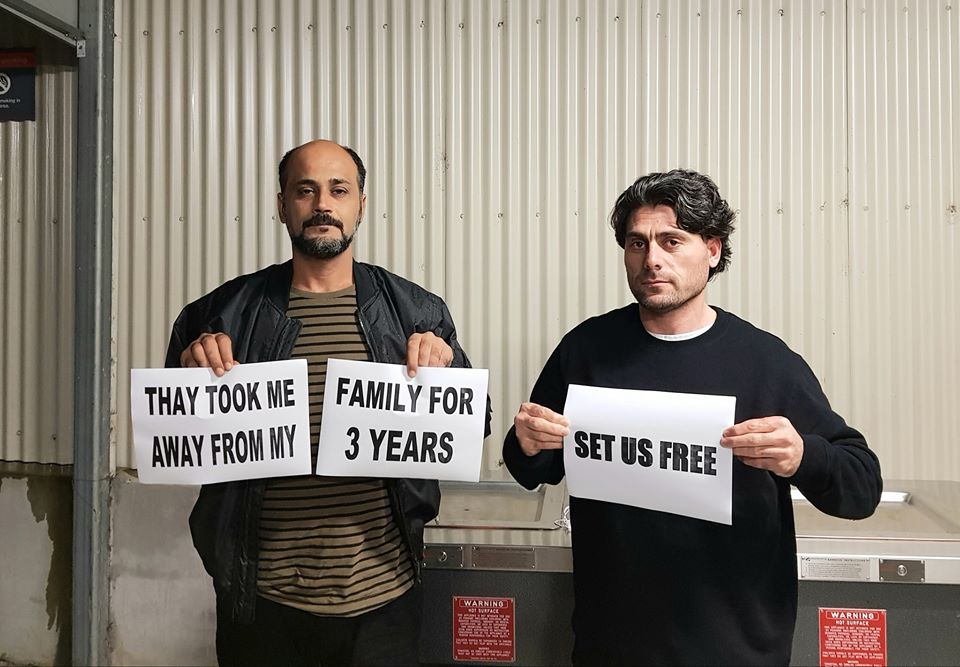
And lastly, Mr Bandesh the government continues to hold over 1,400 people in immigration detention on the Australian mainland. It has taken no preventative measures to deal with COVID-19 in relation to these people.
What do you want to see happen? And what does it mean if the government simply continues on in the way that it has been?
I asked the ABF and the Serco manager, “Who is going to take responsibility if someone is infected by COVID-19? If they die what will happen? Who is going to take responsibility?”
I asked, “Why shouldn’t we do something before something happens?”
The government should think carefully about the detainees here. Those people are very sick physically and mentally.
The first thing is they need to be safe. That is why they fled their countries. They don’t want to die. They want to survive.
After seven years, they want to be safe and in the community with their family and friends. Then they could protect themselves.


